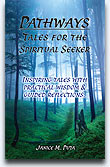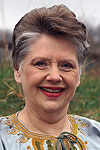Empowering Women’s Future: The AIDS Orphans Sewing Project.

Empowering Women: Welcome a Guest
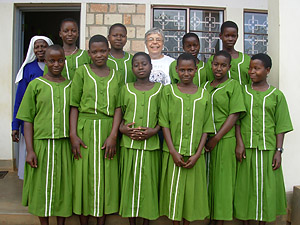 In 1990, the Sinsinawa Dominican Sisters in Madison, Wisconsin, welcomed Sr. Hellen Bandiho from Bukoba, Tanzania, in East Africa. Sister Hellen was coming to the U.S. to earn her MBA at Edgewood College.
In 1990, the Sinsinawa Dominican Sisters in Madison, Wisconsin, welcomed Sr. Hellen Bandiho from Bukoba, Tanzania, in East Africa. Sister Hellen was coming to the U.S. to earn her MBA at Edgewood College.
As the sisters exchanged information about their cultures and countries, Sister Stella Storch determined that some day she would like to visit Tanzania.
Being a firm believer in “dream it, believe it, achieve it,” when Sister Stella had a six month sabbatical in 2000, she knew exactly where she was going to go.
When she made this first visit to Bukoba, Tanzania, Sister Stella visited the convent for the Sisters of St. Therese of the Child Jesus. Not knowing that these were AIDS orphans, Sister Stella saw many girls being taught basic hygiene and things a mother would teach her daughter. She observed the abject poverty in Bukoba and came back to Wisconsin appreciating every convenience and the availability of food that many of us take for granted.
Make a secure donation online with PayPal to the AIDS Orphan Sewing Project.
Think and Act Globally
In 2001, Sr. Stella became the Coordinator of Justice, Peace, and Ecology for the Sisters of St. Agnes at their motherhouse in Fond du Lac, Wisconsin. In that role, she worked with other Agnesian Sisters in founding Unanima International (UI), a non-governmental organization at the United Nations. (“Un” represents the United Nations, “anima” is the feminine spirit.) The members of UI focus on human trafficking, and, as she began to work in this context, Sister Stella made the connection to the girls in Bukoba, Tanzania.
She realized that without family, money, and skills, these girls were the perfect prey for those who would exploit them. Without outside intervention, these girls were prime targets for human traffickers.
Sister Stella searched for ways these girls could be taught a skill to support themselves. She came across a placemat she thought these girls could learn to make. She asked the Sisters in Tanzania to organize classes for the girls and teach them basic sewing skills. Sister Stella went on a personal campaign, knitting scarves to sell and asking for donations until there was enough money to send to Tanzania to buy the first treadle sewing machines for this project.
Empower Women’s Future
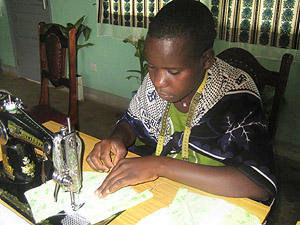 What began as a suggestion for a sewing cooperative evolved into a three-year school called “Empowering Women’s Future: The AIDS Orphan Sewing Project.” The Sewing Project is part of a much larger ministry to AIDS orphans called St. Maria Goretti Organization, which is recognized as a Tanzanian notfor- profit, nongovernmental organization. It provides assistance to AIDS orphans by paying school fees, giving money for food, buying school uniforms, and other services.
What began as a suggestion for a sewing cooperative evolved into a three-year school called “Empowering Women’s Future: The AIDS Orphan Sewing Project.” The Sewing Project is part of a much larger ministry to AIDS orphans called St. Maria Goretti Organization, which is recognized as a Tanzanian notfor- profit, nongovernmental organization. It provides assistance to AIDS orphans by paying school fees, giving money for food, buying school uniforms, and other services.
Many of the girls who come to the Sewing Project walk one to two hours each way — and one girl walks three hours. The sisters are looking to place her with a family closer and then give money to the family for her upkeep. The girls, most of whom are 15 to 20 years old, are willing to do this for three years in order to learn the basics of sewing, and, ultimately, to become tailors.
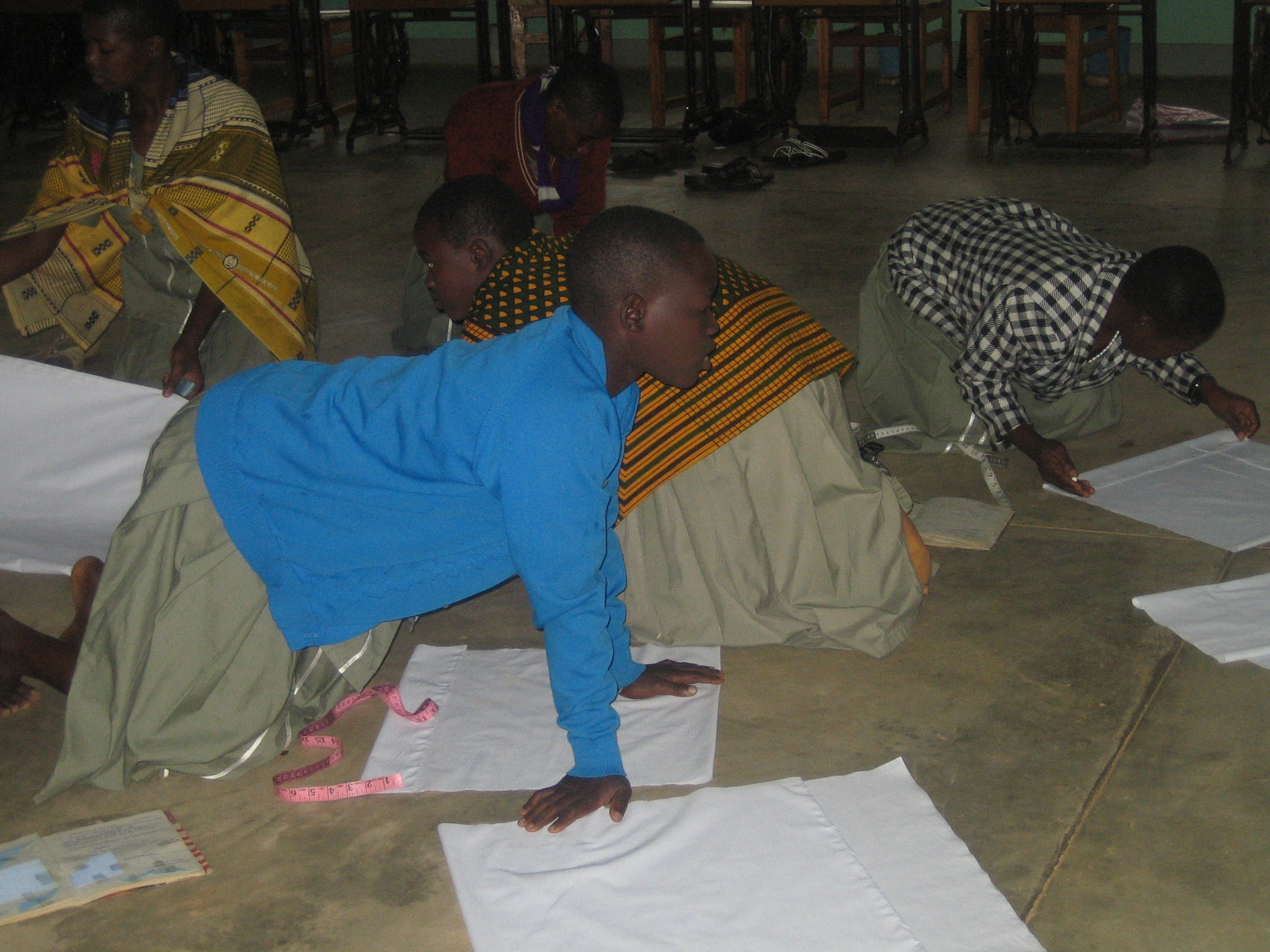 During this training program, students are encouraged to bring to class orders from their village customers and to work on the clothing under the supervision of the instructor.
During this training program, students are encouraged to bring to class orders from their village customers and to work on the clothing under the supervision of the instructor.
Upon graduation, they are given a sewing machine so they are fully independent. The first three graduates staff a store in town that sells their dresses and nightgowns. Occasionally, they receive a contract from the government to sew uniforms for children going to school.
Through the Sewing Project, more than thirty girls in their teens or early 20s now have a chance for a modest existence.
Organize a Business Venture
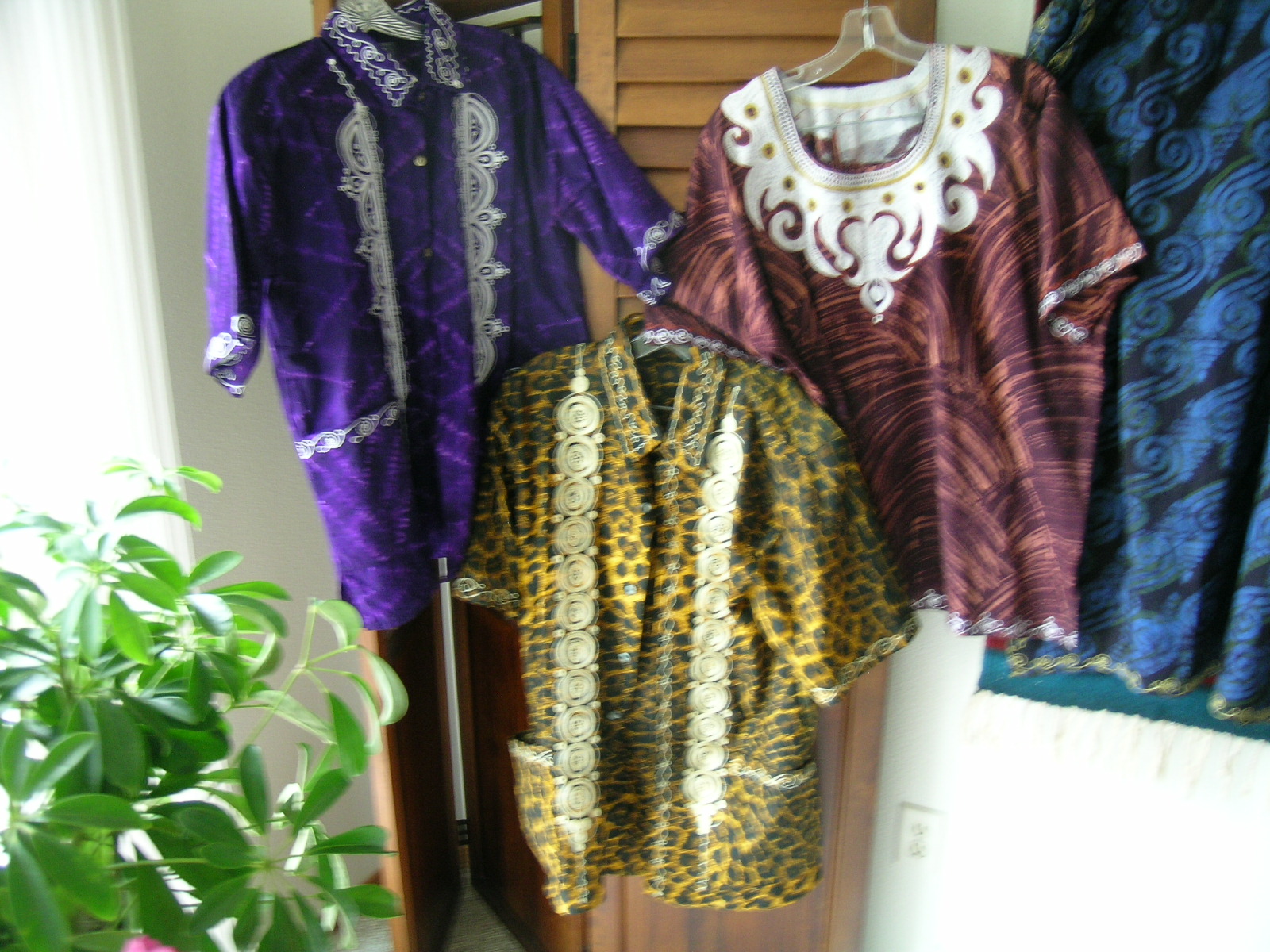 Some of the African dresses and shirts made by these girls are shipped to Sister Stella in Wisconsin. She sells them locally and sends the money back to Bukoba, where it covers the cost of the training program and one hot meal a day for these girls.
Some of the African dresses and shirts made by these girls are shipped to Sister Stella in Wisconsin. She sells them locally and sends the money back to Bukoba, where it covers the cost of the training program and one hot meal a day for these girls.
You’ll find Sister Stella at area festivals, fairs, and art shows. She also approaches retailers to sell these authentic garments.
Her fondest dream is seeing these beautiful clothes sold in specialty stores and available online.
Thanks to a $5,000 grant from the Sophia Foundation and money raised from selling more than 100 scarves she knitted herself, Sister Stella made another trip back to Bukoba in May of 2006. This was an opportunity to celebrate accomplishments and to address fundamentals like sizing and labeling for a retail clothing business.
Add the Human Element
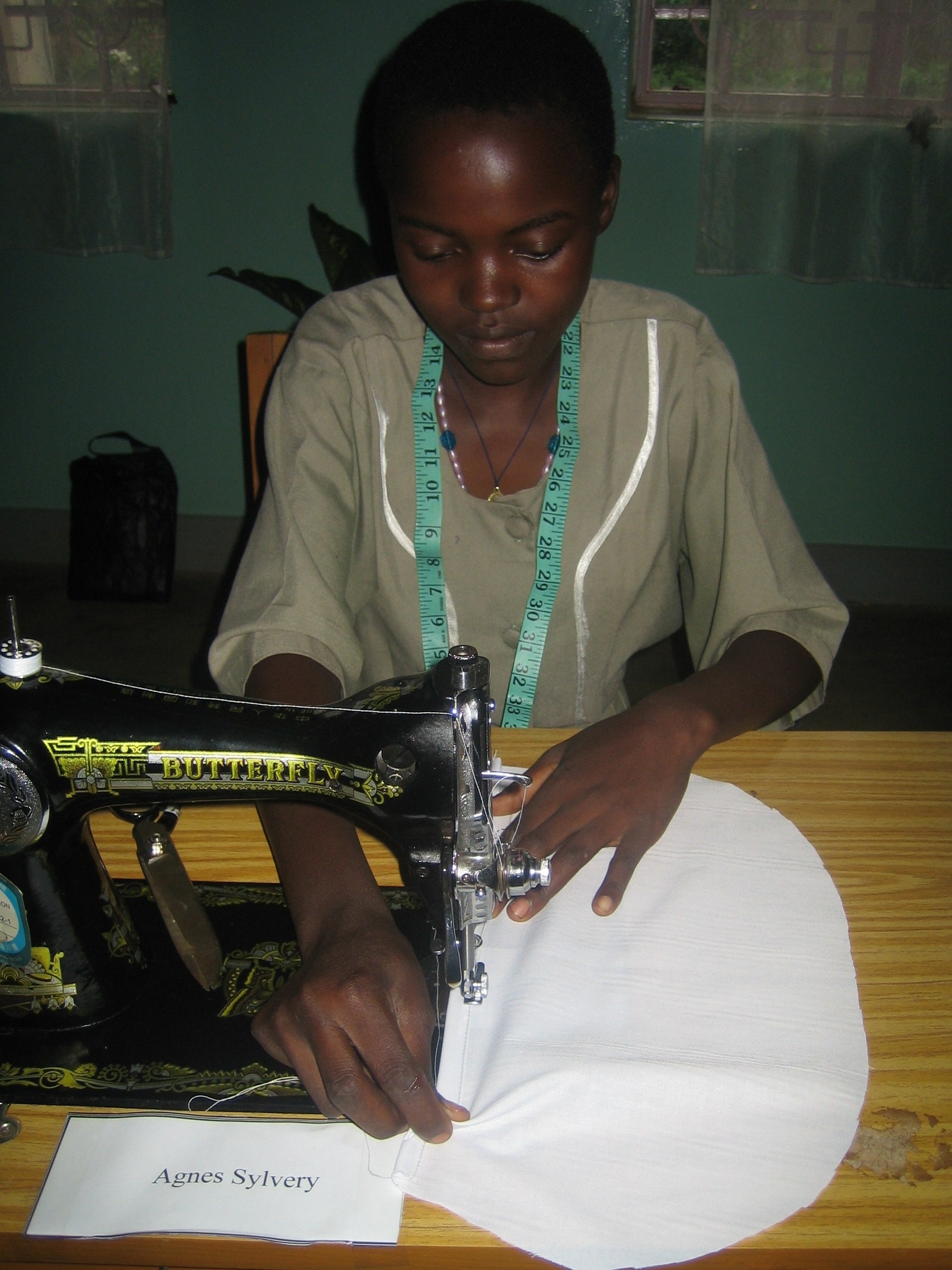 In order to better represent these beautiful girls, Sister Stella is composing biographies and photos of each seamstress. She hopes to be able to share this information with customers so they can have a more personal connection with these girls in Bokuba.
In order to better represent these beautiful girls, Sister Stella is composing biographies and photos of each seamstress. She hopes to be able to share this information with customers so they can have a more personal connection with these girls in Bokuba.
One of the major motivations for these girls to diligently study in the Sewing Project and to graduate is the prospect of creating an income to buy food for their family and to help educate their siblings.
How You Can Help
To learn more, to send donations, or to purchase or sell these garments, contact Sister Stella Storch by E-mail at: sstorch@csasisters.org.
Here is the current information on the annual Tanzanian Trunk Show in Fond du Lac, Wisconsin.
Make a secure donation online with PayPal to the AIDS Orphan Sewing Project.
More Information on Human Trafficking
Unanima International: www.unanima-international.org
Coalition Against Trafficking Women: www.catwinternational.org
End Child Prostitution, Child Pornography and Trafficking of Children for Sexual Purposes: www.ecpat.net and www.redlightchildren.org
